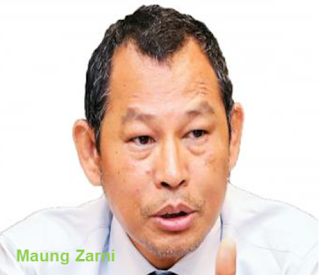First lady Emine Erdoğan
explained the plight of Myanmar's Rohingya Muslims to her counterparts in a
meeting between first spouses during the NATO Summit held in Brussels this
week.
Accompanying her husband
President Recep Tayyip Erdoğan at the NATO Summit, Emine Erdoğan toured the
Royal Museum for Central Africa in Tervuren in the company of other spouses of
state leaders.
The military junta in
Myanmar has not only snatched away the citizenship of the Rohingyas in the
country’s Rakhine state, but has been perpetuating killing and torture against
them for the past four decades. The United Nations and other international
institutions have been totally ineffective in addressing the problem, raising
questions of their complicity.
Bangladesh, however, has
displayed a positive moral stance by providing the Rohingyas with shelter. It
is now time for Bangladesh to exert its position and tell the international
community it is high time to come forward and do their share for the Rohingyas.
Such views were expressed by
John Packer during a discussion held on the Rohingya issue at the Prothom Alo
office on Wednesday. Packer is director of the Human Rights Research and
Education Centre of Canada’s University of Ottawa and has past experience of
working in various UN bodies. He said that what is happening to the Rohingyas
is a well orchestrated violation of human rights for which the Myanmar government
is responsible.
Also speaking at the
discussion were Maung Zarni and retired major Emdadul Islam. Zarni, a democracy
advocate and former research fellow at LSE, is the coodinator of the ‘Free
Burma Coalition’. Major Emdad is a security expert of Bangladesh.
Maung ZarniThe discussants
spoke on the prevailing situation in Myanmar, the country’s internal politics,
the response of the neighbouring countries, initiatives by the United Nations
and other international agencies regarding the predicament of the Rohingyas and
Bangladesh’s stance. They said two issues loomed large before the Rohingya
refugees - to return to their homeland in the Rakhine state with citizenship
status and to seek justice for the crimes committed against them.
John Packer pointed out that
98 per cent of the Rohingyas who are being denied citizenship rights were born
after the independence of Myanmar. They had been recognised as citizens up
until 1982. The Myanmar rulers unilaterally snatched away their citizenship,
violating all international laws in this regard.
Despite all these
violations, two important countries, China and India, continue to appease
Myanmar in their respective geopolitical an economic interests. Packer however,
questioned the actual feasibility of investment in Myanmar, as the authorities
there could at any time come down hard on the investors if they did not toe
their line.
Maung Zarni strong condemned
the role of the United Nations and its affiliated institutions. He said they
failed to include the Rohingyas in any of their discussions about the
Rohingyas.
He also criticised the
recent secret MoU signed between UNDP, UNHCR and the Myanmar government which
had been leaked. Nowhere in the document has the word ‘Rohingya’ been
mentioned. There are also allegations against certain UN officials regarding
their complicity in the actions being taken against the Rohingyas. UN secretary
General Antonio Guterres has failed to initiate any investigation against these
accused officials.
Zarni also strongly
castigated Myanmar’s state counselor Aung San Suu Kyi. He said there was no
democracy whatsoever in Myanmar, not even a fragile democracy. The military
junta was using Suu Kyi as a smokescreen behind which to commit their
atrocities.
Emdadul IslamRetired major
Emdadul Islam felt that the present situation posed as a potential threat to
regional security. He said till now the Rohingya community has not resorted to
any form of violence. They have no say in Myanmar’s internal politics, they
have never taken anyone hostage. Unless the repression of these people was
halted immediately, the situation might give rise to regional unrest.
Presided over by Prothom
Alo’s editor Matiur Rahman, the discussion was attended by senior journalists
of the daily.



